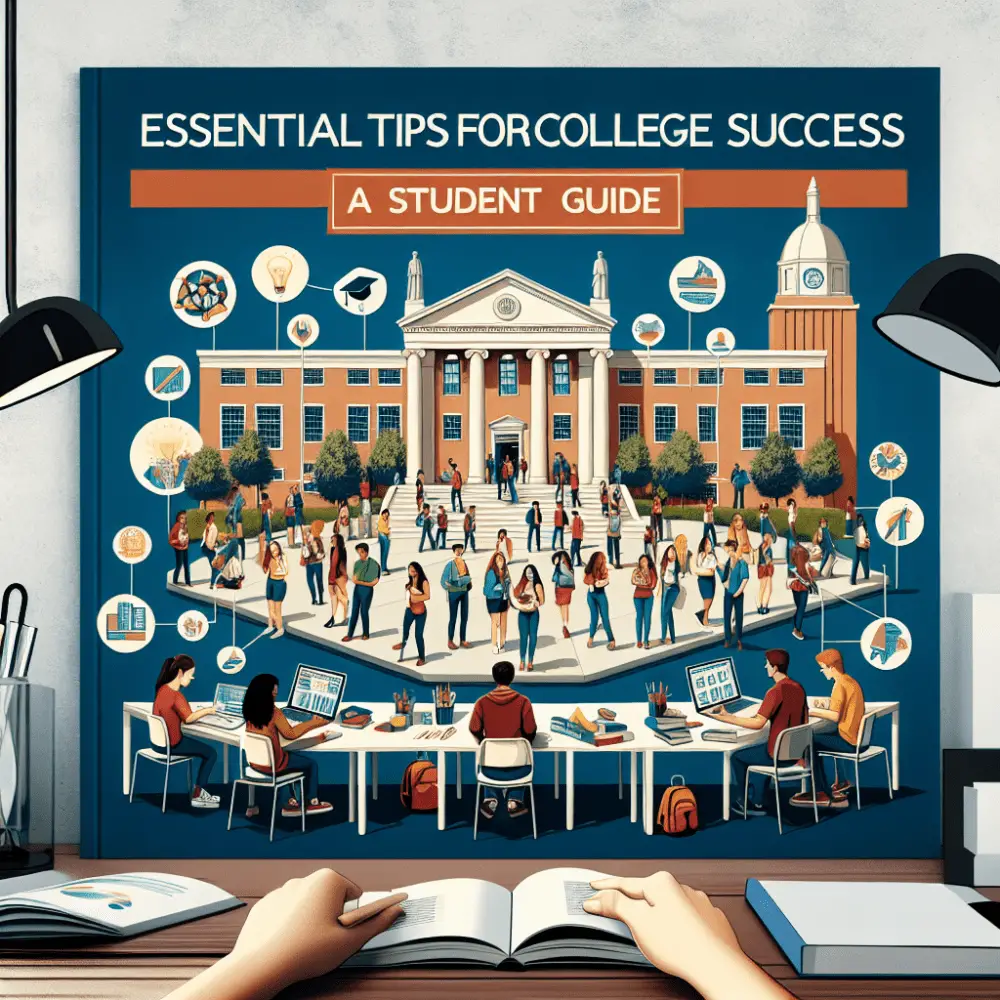
College can be an exciting and challenging time for students. It’s a time of growth, learning, and self-discovery. But navigating the college experience can also be overwhelming, especially for those who are new to it. That’s why having some essential tips for success can make all the difference in helping students thrive during their college years.
In this student guide, you will find a comprehensive list of essential tips that cover everything from time management to study habits to self-care. Whether you are a freshman just starting out or a seasoned student looking to improve your academic performance, these tips will help you make the most of your college experience and set yourself up for success in the future. So let’s dive in and discover how you can elevate your college journey with these essential tips!
**Time Management**
One of the most important skills that college students need to master is time management. With classes, assignments, extracurricular activities, and social events all vying for their attention, it can be easy for students to feel overwhelmed and stressed out. However, by effectively managing their time, students can ensure that they stay on top of their responsibilities while still having time for themselves.
One key tip for effective time management is to create a schedule or planner where you can write down all of your commitments and deadlines. This will help you visualize your week ahead and allocate time for studying, attending classes, completing assignments, and participating in other activities. By planning ahead and breaking down your tasks into smaller manageable chunks, you can avoid procrastination and ensure that you stay organized throughout the semester.
Another important aspect of time management is prioritization. Not all tasks are created equal, so it’s crucial to prioritize them based on their importance and deadlines. Focus on completing high-priority tasks first before moving on to less urgent ones. This will help you stay focused and productive while avoiding last-minute rushes or cramming sessions.
Lastly, don’t forget to schedule breaks and downtime into your day. Taking regular breaks can help improve focus and concentration while preventing burnout. Make sure to also set aside time for self-care activities such as exercise, meditation, or spending time with friends and family. Balancing work with relaxation is key to maintaining a healthy lifestyle during your college years.
**Study Habits**
Effective study habits are essential for academic success in college. Developing good study habits early on can improve your learning outcomes while reducing stress levels during exam periods.
One helpful tip is to create a conducive study environment that is free from distractions. Find a quiet place where you can focus without interruptions from roommates or noise from outside. Make sure your study area is well-lit, comfortable, and equipped with all the necessary supplies such as textbooks, notebooks, pens, and a computer.
Another important aspect of good study habits is active learning techniques such as summarizing information in your own words or teaching concepts to someone else. Active learning engages your brain more effectively than passive reading or listening alone. Try using flashcards, mind maps, or mnemonic devices to enhance memory retention and comprehension.
Additionally, practice regular review sessions where you revisit previous material learned in class. Spaced repetition has been proven to improve long-term memory retention by reinforcing knowledge over time. Set aside dedicated study sessions each week to review notes or readings from earlier lectures.
Lastly keep track of deadlines by using digital tools like calendars or apps that send reminders about upcoming assignments or exams ahead of time so that you have enough preparation built-in before the due dates arrive.
**Self-Care**
Taking care of yourself should be a top priority during your college years when juggling academic demands along with personal responsibilities can become overwhelming at times.
Making sleep a priority should be one of the top self-care steps taken by students because sleep plays an essential role in memory consolidation as well as overall well-being.. Ensure getting at least 7-8 hours of quality sleep every night which helps improve focus,, concentration,and mood throughout the day.
Maintaining a healthy diet rich in nutrient-dense foods such as fruits,, vegetables ,whole grains,and lean proteins can boost brain function ,energy levels,and overall health .Avoid excessive consumptionof junk food sugar-laden beverages which may leadto energy crashes,,mood swings,,and poor concentration levels .
Regular exercise not only keeps physical health but also improves mental acuity by increasing blood flowto the brainwhich helps enhances cognitive function ,memory retention ,and mood regulation.,.,Setting aside atleast 30 minutes each dayfor physical activity like walking jogging,, yoga,,or dancingcan have significant benefits on both physicaland mental health..
Lastly,it’s crucialto prioritizemental healthby seeking supportfrom counselors,, therapistsor mentalhealth professionalswhen needed.College counseling centers offer valuable resourcesfor students seeking assistancewith stress anxiety depressionor othermental health issues.Don’t be afraidtostep forwardand askfor helpwhen neededyour well-beingshould always come first..
**FAQ**
1) How many hours should I spend studying each day?
Ans: The number of hours spent studying each day depends on individual preferences,schedules,and workload.However,it’s generally recommendedto dedicateat least 2-3 hoursof uninterruptedstudy timeto each courseyouare takingper week..
2) How should I deal with exam anxiety?
Ans: Dealingwith exam anxietycanbe challengingbut taking proactive stepslike stayingwell-prepared,gettingsufficient sleepeatinghealthy foods exercisingregularlyand practicing mindfulness techniquescan helpreduce anxietylevels..Additionally,maintaininga positive mindsetand seeking supportsfrom peersfamilyorschool counselorscanalso alleviate exam nerves…
3) Is it okayto take breakswhile studying?
Ans: Yes,taking regular breakswhile studyingis importantfor maintainingfocus concentrationandreducingfatigue..Short breaksof 5-10 minutesafter every25-30minutesof focusedstudycanhelp refreshyour mindrechargeyour energy levelsand improvesustainedattention….
4)How doI finda balancethemainextracurricularactivitiesduringcollege?
Ans: Findinga balancebetweenacademiccommitments extracurricular activitiespersonal obligationscanbe challengingbut settingpriorities creatinga detailedschedulelearningto saynonot overcommitting oneselfmaintainingopen communicationwith othersseekingsupportwherenecessarycanhelpcreate abalancedlifestylewhileincollege…..












